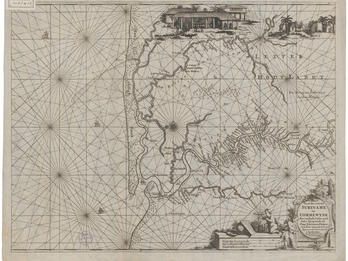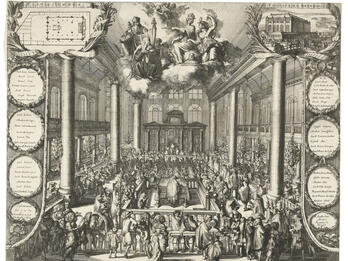Pinkas Lita (Register of Lithuania): On Excommunication
If one who has been excommunicated does not act to have his excommunication removed within thirty days, and the local rabbinic court sees and observes that he remains in his state of rebellion when he has the wherewithal to remove his debt (even though he does not wish to do so), it has the authority to move against him in a gentile court. If he remains unaffected by this, and maintains his state of rebellion, and does not have the excommunication removed for a period of a quarter of a year, the court has the authority to trespass on his arenda [lease of an estate], to lease it, remove it from his possession, and seize it wherever it is. This is in accordance with the law stating that the wicked borrows and does not pay (Psalms 37:21), but rebels and embezzles. However, a poor and destitute man, concerning whom it is known has nothing, should be judged solely by Jewish law.
Throughout the entire period of his excommunication, the warden shall proclaim the ban anew, two, three times a week, that is to say on every Monday, Thursday, and on the Sabbath before Barekhu [the call to prayer].
Regarding a man who violates excommunication [see Joshua 7:1] because he has not been treated in accordance with the laws of excommunication: if this occurs after it has become widely known that the individual has been placed under a ban, and the man infringes upon it, whether through speech, commercial interaction, joining a minyan [quorum], participating in a holy ceremony, or any of the other terms of excommunication, he is obligated to pay the plaintiff.
If a writ of excommunication was issued in Lublin [where the Council of the Four Lands would meet] against a certain man, due to his failure to obey the judgment in accordance with the subpoena of the judges of the three lands, and he gives an excuse for his deeds, that he was unable to come on the appointed day to give his testimony and that he can state his case in Lublin at the next fair, he will be permitted to have his excommunication removed if he provides a sufficient guarantee to his community that he will keep his word and will obey the judgment in the holy community of Lublin at the next fair. If he does not keep his promise to come to the next fair, the guarantor must pay his debt for him. If he is a poor and destitute man who is going on his innocent way, and it is well known that he has no ready money, or silver, or gold, or any assets at all, and a writ of excommunication against him was issued in Lublin, he shall remain in his state of excommunication for seven days, from the day that it was declared against him in his city. Afterward he will be left alone, free of the punishment.
The heads of each and every community must keep a close eye upon the men who become snared in the net of excommunication, that they stay indoors and do not mingle with people, so that the multitude will not stumble into sin on their account.
Credits
Published in: The Posen Library of Jewish Culture and Civilization, vol. 5.




